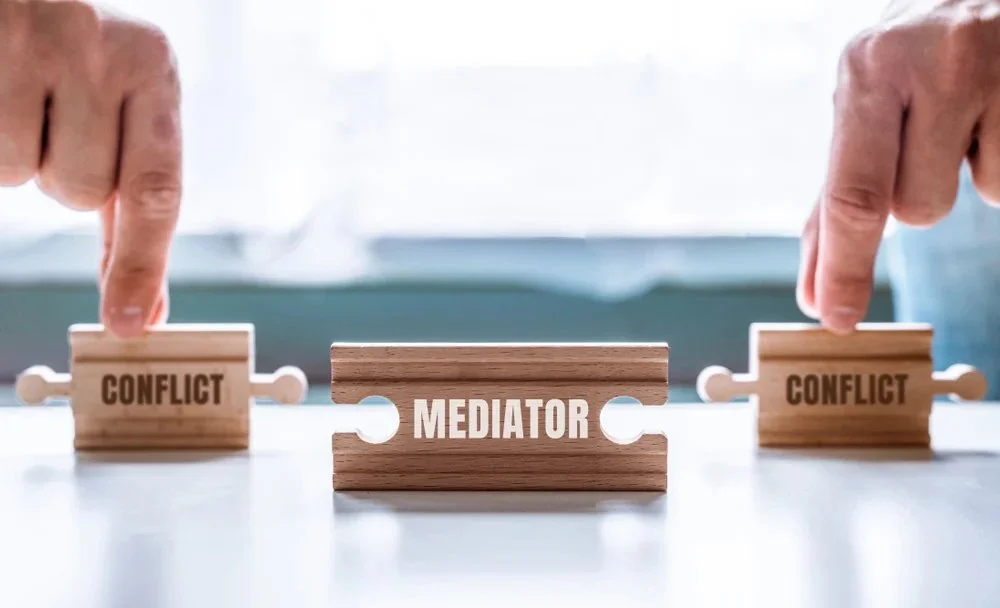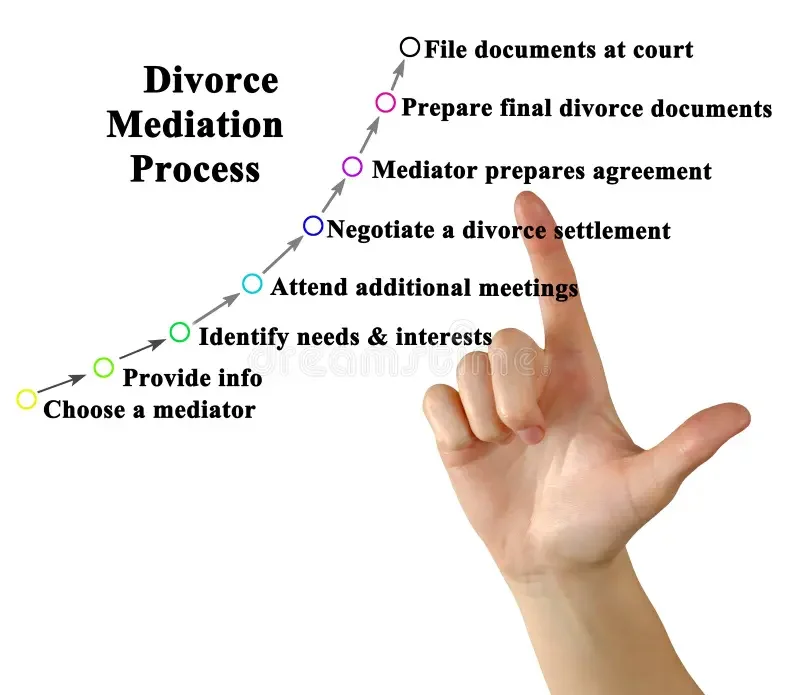Mediation
Amy attended the University of Georgia, graduating Cum Laude in 2000 with Bachelor of Arts degrees in Criminal Justice and Political Science. She continued to Mercer University School of Law and graduated with a Juris Doctorate in 2004. Ms. Boyd began her practice as a Staff Attorney for the Towaliga Judicial Circuit, Superior Court of Georgia under the Honorable Thomas H. Wilson. She worked for this Superior Court Judge for over 20 years and has participated in countless civil and criminal matters, including exclusive handling of all pro-se divorce litigants. In 2024, Ms. Boyd completed her training with Henning Mediation and is qualified in Civil Mediation and Domestic Relations Mediation.
Mediation is by a neutral third party, called a mediator, who is typically acceptable to all participants. The mediator's job is not to impose a solution, but to help the disputing parties engage in constructive negotiations so that they can agree on a solution. The mediation process promotes fair play while allowing each party to be heard and have their desires conveyed. This leads to building trust between the parties and repair of relationships. By shifting the focus from personalities and emotions to considerations of facts, issues, and possible new solutions, the mediator increases the chances of reaching a mutually beneficial settlement. Mediation will hopefully end with a "memorandum of agreement" signed by all parties. This is simply a written document specifying what will be done by each party to resolve all the issues in the case.
If your case can be worked out through mediation, often this saves a lot of time and money for both parties. You may come to mediation with your attorney or without an attorney. Mediations may be in-person or remote, however, we recommend in-person mediations for the best results.
How to Prepare
Have the information you need to settle the case. If the case involves dividing property, know as much as you can about that property, including how much it is worth and how much equity is in the property. Know what is in all your bank accounts. If there are assets that should not be divided, be prepared to demonstrate why. If the case involves custody of children, know what you propose and why it is beneficial for the children. Knowledge is very powerful when trying to resolve a dispute.
Be prepared to consider new information. There are many issues that may need to be resolved, and your perspective on the matter may be very different from the person on the other side of the dispute.
Have patience. Settlement negotiations take time. For disputes involving children, property, and support, a resolution will not be quick, but it is a substantial step in getting your case finalized and worth the time and efforts to reach an agreement. At times the process necessarily involves an extended time (sometimes the majority of the time) when the mediator is in the other room, working with the other party and his or her attorney.
If custody of children is at issue, consider the children's best interests and desires, along with stability and routine.
Be prepared to compromise. Settlement only happens when both parties benefit. Neither party will win or lose. A compromise will involve give and take from both sides.

